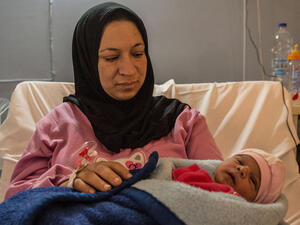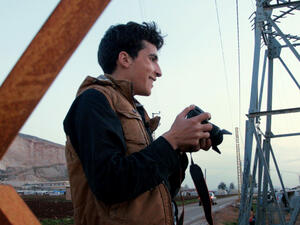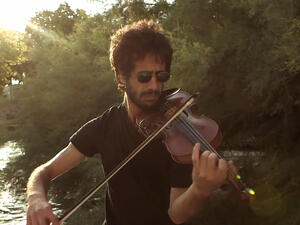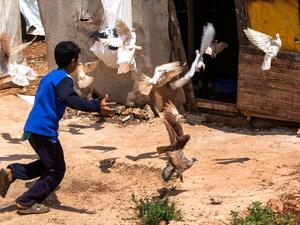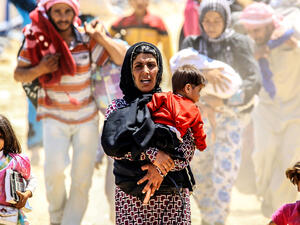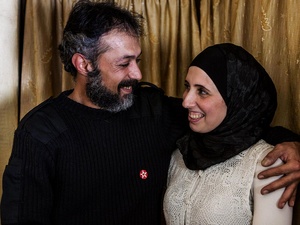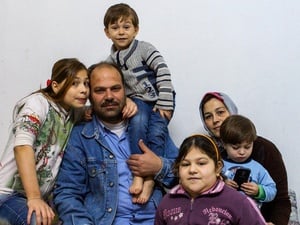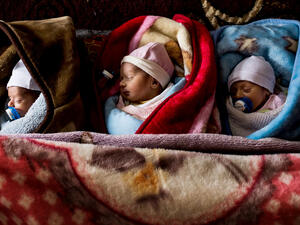Lebanon: UNHCR field teams addressing wider problems for war victims
Lebanon: UNHCR field teams addressing wider problems for war victims
With UNHCR's distribution of emergency aid proceeding smoothly, our field teams are now looking at some of the wider problems facing the victims of the war in Lebanon. There are thousands of Lebanese who have not been able to return to their homes - in areas around Beirut there are an estimated 12,000 displaced who have not returned after the war. In Beirut itself, the charity Caritas estimates there are 35,000. These people have lost their source of income. Older people and those with disabilities have chronic medical needs.
And our partners note that the children need help to resume their education and counselling because of their war experiences. As part of that problem, UNHCR has helped a Lebanese NGO, the Development for People and Nature Association, to set up a summer camp they're running for children in the town of Jezzine. The 104 children, aged from nine to 14, come from various villages in the area and have activities that include peace education, plays and handicrafts. UNHCR has donated tents, mattresses, blankets and kitchen sets for the camp. Other similar requests for tents have now been received.
In the area of Lebanon closer to the Israeli border, the emphasis remains on getting basic emergency aid - tents, blankets, mattresses, plastic sheeting - into the heavily damaged villages. This week in the most southerly areas of Lebanon we are targeting assistance at villages that suffered damage to up to 70 percent of buildings. That follows the previous distribution of aid to villages with even higher levels of destruction. We continue to bring in fresh supplies by air, sea and road.
UNHCR is not advising further returns to this most southerly area of Lebanon because of the destruction of the basic infrastructure such as water and electricity and the danger posed by unexploded ordnance littering the landscape. Many of those who have returned to the worst-hit villages are likely to spend the approaching winter in other villages and take up residence again only after their houses are rebuilt. A substantial number of the Lebanese who rushed home immediately after the ceasefire found they could not use their houses and remain displaced - but nearby with friends or relatives rather than in the places where they sheltered during the fighting. As with those displaced in or near Beirut, they and their hosts require continuing assistance to cope with the effects of the war.


